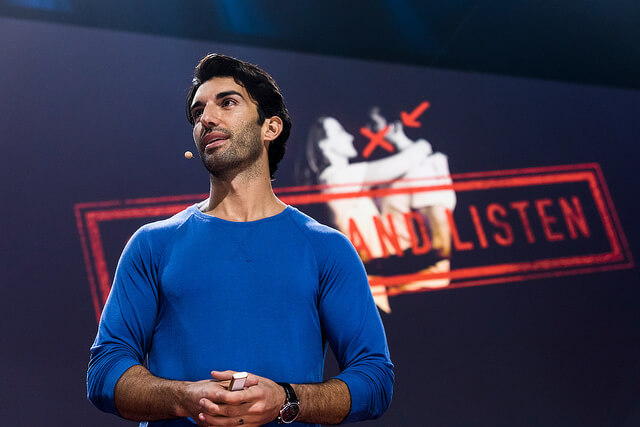by The Cowl Editor on February 2, 2018
Opinion

by Kelsey Dass ’18
Opinion Staff
Captain America, Optimus Prime, Batman, Superman, and Spiderman all share the same characteristic: their manliness. These superheroes have come to serve as role models for many young, impressionable boys. Over time, they have come to define what a man looks and acts like. In turn, boys turn into men who consistently attempt to prove their masculinity and hide what the world may consider shameful.
Does that really make them man enough?
The idea that young boys are identifying with these heroes is not entirely negative. These characters are always “doing good:” fighting crime, battling harmful villains, and protecting society against natural disasters and whatever else may threaten the lives of the public. It is wonderful that boys are growing up with the idea that there is importance in doing good deeds.
However, it does plant a seed in the minds of these children, who believe that their manhood could only be defined by that one image of strength and courage. Once this thought is in their minds, it is all they strive for. We have all seen dozens of young boys on Halloween dressed up in every superhero costume possible, aspiring to be closer to a “super” man.
However, it is not solely based on how they reflect their desire on the surface level, there is a lot boys internalize that we often miss. Research shows that by the age of seven, more than 50 percent of boys desire a more muscular body type, which increases to 90 percent as the child enters adolescence.
This is not solely at the fault of these superheroes. As a society we have created the illusion that we desperately need men to be strong for us all of the time. If they admit their fears, anxieties, stress and anything else we have come to deem as “shameful,” society implies, the whole world would crumble into pieces.
This idea is constantly reinforced in ways we do not even truly recognize. In 2017, one of the Super Bowl commercials advertising Miller Lite used the slogan, “Man up, and choose a light beer with more taste.” Our society has pushed the idea of hyper-masculinity to unattainable measures.
Justin Baldoni, who plays “Rafael” on The CW’s hit show, Jane the Virgin, has utilized his platform to discuss this issue. Baldoni makes a call to men in his moving TED talk, saying “Growing up, we tend to challenge each other. We’ve got to be the toughest, the strongest, the bravest men that we could be. At the end of the day, our identities are wrapped up in whether or not at the end of the day we feel like we’re man enough.”
This all seems to leave little room for men to be able to be who they are when they have to be tough, strong and brave. In a focus research group done with young children, they were asked what “man up” means, one young boy stated, “It means to toughen up and go through it unemotionally.”
One could argue that as a society we have made great strides in the area of self-expression. While this is in fact true, men have yet to have to opportunity to be a part of this revolution as much as they should.
Change needs to happen now. Our comic book heroes need to be able to sit down after a long day and say, “I am going through a really hard time.” Our role models need to admit fear and express the normalcy in doing that. Elementary, middle, and high schools, colleges, and workplaces need to enforce “a daily real.” If we encourage and accept realness in the language we use to speak to each other, we will develop a world in which masculinity is both strength and shame, and neither will negate the other.
Comments are closed.
BRAVO Kelsey !!!
Continue to encourage people to keep it real and honest about life’s struggle. This will create a more compassionate world and hopefully less anxiety and depression in today’s world.